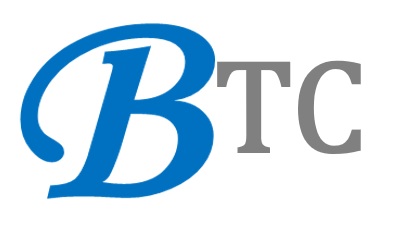
You may recall the iconic 2013 Gallup study that found that people don’t leave companies, they leave managers. While that research was conducted almost 10 years ago, the adage holds up today.
Over the last few years, I’ve been consulting with companies on how to “bring their human” to the world of hybrid work, which helped me begin to see how important managers are. More recently, in working on a book about retaining talent in today’s workplace, I’ve had the opportunity to talk with many company leaders about how they view managers.
What I’ve learned is that managers are really having a moment. Between the Great Resignation, a lingering pandemic, employees demanding flexibility, skyrocketing mental health challenges, a looming recession, and general uncertainty, more and more employees are turning to their direct supervisors for direction and support.
The data bears that out. A recent poll at Salesforce revealed this important insight: “While employees once considered top executives their most-trusted source of company information…Now, employees rate their immediate supervisor as most important to understanding the organization and its priorities, above the executive team.” And as recently as December 2021, studies confirmed what Gallup found all those years ago — that employees leave bad managers, not bad jobs. For instance, when GoodHire surveyed 3,000 American workers, they found that 82% of them said they would potentially quit their job because of a bad manager.
Unfortunately, managers aren’t always prepared to meet their moment because they’re woefully under-trained and overworked while tasked with leading their teams during heightened turbulence. In fact, new research by Future Forum found a record 43% of managers say they’re burned out — the highest of any job level.
To retain your managers — and the employees who report to them — you need to invest in their development. Here are three ways to do it.
Elevate the role of the manager.
At the October Future Forum Conference, Georgetown professor and author of The Necessary Journey, Ella Washington, captured the issue perfectly when she said, “Connecting with employees is often seen as ‘extra’ work for managers, so it goes to the bottom of the list. Companies need to make it clear — it is not extra; it is essential.”
General Mills’ Engaging Leader (EL) program seeks to prioritize that connection. According to global CHRO Jacqueline R. Williams-Roll, the program began in 2018 by asking managers: “What would it take for you to be a great leader? What do you need?” The feedback led to the creation of the EL program.
The program takes managers through the company’s four core values — win together, continuously innovate, champion belonging, and do the right thing all the time — and gives them space to reflect as well as actionable steps for how to put those values into practice. Managers are prompted to answer the question, “How well am I doing on each of these?,” and they receive feedback from their direct reports as well.
By formalizing the feedback relationship, the EL program elevates not just the experience of the manager, but also their connections with their direct reports, as something worthy of reflection. As Williams-Roll told me, “Eighty-eight percent of our people feel like they’re supported by their manager. And it has a direct correlation with not only engagement, but retention.”
Create room to grow.
Managing during these chaotic times has been challenging even for the most experienced managers, let alone those new to the job. And because employees are often promoted into managerial positions because they’re good at their day jobs — not necessarily because they have the skills to coach or mentor — it’s imperative that they’re given the opportunity to develop those skills.
Joe Whittinghill, Microsoft’s corporate vice president of talent, learning, and insights, shared with me how the entire company of 220,000 people is currently going through what they’re calling a “three-hour culture conversation” in groups with the idea of re-onboarding employees into Microsoft’s culture.
The key to these important conversations is that they’re led by managers — not by HR — in order to create more direct, personal connections throughout the organization and provide a growth opportunity for managers. As one of Whittinghill’s colleagues shared with him, “I didn’t think [the culture conversation] was going to be that big of a deal…but my team is so fired up.”
Managers are given a facilitator’s guide that lays out the important messages to convey and emphasizes the importance of sharing personal stories. Whittinghill has also made himself available to coach and prepare managers for these conversations individually. Placing managers in the middle of these high-touch, valuable conversations allows managers at all levels to grow and develop.
Smaller companies can emulate this initiative. The first step is to target the problem you’d like your managers to help address — for example, a high-level problem like values and culture or a more concrete problem like product development or sales. Next, map out a clear process for bringing the managers into the conversation, and all along, use your values as a guide. As Whittinghill said, “[I]f you do that, the outcome is belonging,” which ties together managers, their teams, and the entire organization.
Provide peer-to-peer support for managers.
Even the most elevated and well-trained managers are going to have a lot of work to do. Ongoing support is essential as they keep up with continued uncertainty.
I spoke with Hayden Brown, CEO of Upwork, who is passionate about “re-engaging and activating the managers in the business,” especially with so many employees working remotely.
Upwork holds a monthly Zoom gathering called One Upwork Forum, where managers can share information with each other about change they’re driving, DEI initiatives, and anything they’re struggling with. While this is a candid, peer-to-peer gathering, it’s sponsored by a rotating executive, someone “who’s willing to kind of nurture and be the voice and the champion” of the group, Brown told me.
As Brown put it: “I think that’s been a really great way to drive that engagement and have that group kind of helping each other as they’ve gone through so much change.”
Peer support, as opposed to top-down feedback, offers a number of benefits, including “insight into diverse perspectives,” “opportunities to practice new skills in a safe space,” and an “enduring support network.” Having managers practice their skills together is also another opportunity for professional development.
There’s no doubt that this is a difficult time to be a manager. But as Gallup reminds us, “Managers — more than any other factor — influence team engagement and performance…70% of the variance in team engagement is determined solely by the manager.”
It’s time for companies to invest in their managers by giving them the skills and support they need to connect with their teams.
This post is written by Erica Keswin.
Original post link: https://hbr.org/2022/12/to-retain-your-best-employees-invest-in-your-best-managers

